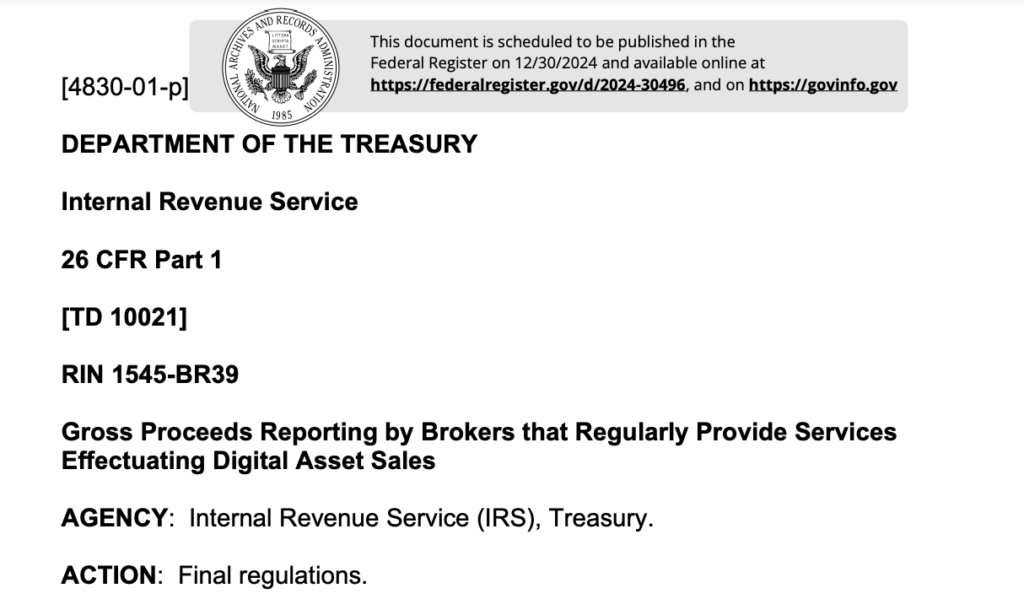- IRS requires brokers to report digital asset transactions, including DeFi platforms, by 2027.
- Some DeFi platforms will be classified as brokers if they control transactions.
- Data collection begins in 2026, impacting up to 875 brokers and 2.6 million taxpayers.
The United States Internal Revenue Service (IRS) has released regulations forcing brokers to report digital asset transactions. This means extending reporting requirements to include decentralized exchanges and other front-end platforms. These regulations will come into effect in 2027 and greatly enhance transparency and compliance in the ever-changing digital asset landscape.
The regulations compel brokers to disclose gross proceeds from cryptocurrency sales and other digital asset transactions, with complete information relating to the taxpayer concerned, which is a far-reaching leap toward bringing decentralized finance (DeFi) platforms closer in line with traditional financial standards of reporting.

According to the IRS, the rules target “trading front-end service providers” if they are brokers, hence providing services for facilitating different transactions with digital assets. The focus will also be on those platforms that sometimes act as intermediaries with several legal entities or otherwise.
Even DeFi platforms based on smart contracts would be viewed as brokers if they have sufficient control over the process of a transaction. The paper claims that the goal is to make front-end platforms guarantee the same transactional transparency for customers as custodial brokers do.
The IRS has sought to allay concerns from the DeFi community, stressing that it is not hostile to the industry. “The Treasury Department and the IRS do not agree that these final regulations reflect a bias against the DeFi industry,” the document explains. According to the agency, it does extend requirements for brokers that have been applied for more than four decades into the digital asset space.
Decentralization Faces Test with IRS Regulations
To facilitate compliance, brokers must begin collecting relevant data in 2026 to be prepared to fulfill reporting obligations in 2027. According to IRS estimates, these changes will affect up to 650 and 875 DeFi brokers and up to 2.6 million taxpayers.
The regulations are foreseen to improve tax compliance by granting greater transparency to the income from digital asset transactions. The IRS expects this increased clarity to benefit both taxpayers and regulatory authorities. Still, the rules raise questions about their effect on many blockchain platforms as their nature is decentralized.
Critics in the DeFi space say that such a concentration on front-end platforms could disincentivize innovation and limit the greater adoption of decentralized technologies. Others see the regulations as a step toward legitimizing the industry, fostering trust among more traditional financial institutions, and wider adoption.
As the crypto industry matures, these IRS regulations represent a seminal moment in its integration into the wider financial system. In bringing DeFi platforms under its fold, the rules have struck a fine balance between innovation and accountability, making sure all actors contribute to a fair and transparent tax regime.
Related | Bitcoin (BTC) Gains Momentum with $475M ETF Inflows, Eyes $110K



